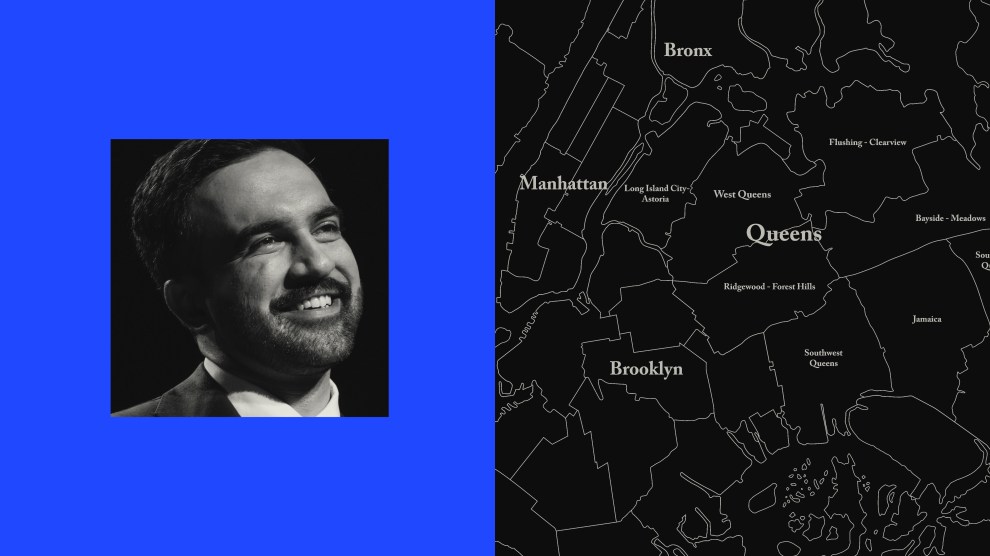
David M. McIntosh (R-Ind.) has the same Indiana roots, fresh-scrubbed boyish looks, and conservative politics as his mentor, Dan Quayle, but he is as politically cunning as the former vice president was bumbling.
Although still a rookie, the 38-year-old McIntosh has been carefully groomed to be a political player. A veteran of the Reagan and Bush White Houses, McIntosh has been shaped and underwritten for a specific purpose: to rewrite the nation’s laws to suit small businesses and to promote corporate deregulation. In fact, some observers believe McIntosh has simply resurrected Quayle’s anti-regulatory, industry-driven Council on Competitiveness, which McIntosh once headed, and moved it from the White House to the Capitol.
This incarnation could prove far more destructive than the original. For example, as the top deputy to Majority Whip Tom DeLay in his anti-regulatory crusade, McIntosh ran a “war room” during the House debate on a regulatory moratorium measure designed to undo or prohibit thousands of environmental, business, safety, and food and drug regulations.
In the war room, a small office near the House floor, lobbyists drafted provisions of the bill and crafted Republican responses to Democratic arguments. According to the Washington Post, one key lobbyist, Paul C. Smith, would write the rebuttals on his laptop and give them to a McIntosh aide, who then distributed them to Republican members.
From the moment he was elected, McIntosh has made direct connections between campaign contributions and official actions. On his first day in office, he introduced a bill promoting medical savings accounts, a measure worth tens of millions of dollars to Golden Rule Insurance, an Indiana company responsible for more than $1 million in contributions to the GOP in 1993 and ’94 ($9,500 went straight to McIntosh). Since then, McIntosh has regularly invited other contributors to testify at congressional hearings and help write legislation.
Take the United Parcel Service (UPS). A longtime leader in workplace injuries and 1994’s top PAC contributor, UPS wanted to weaken the power of the Occupational Safety and Health Administration to enforce workplace standards. Between December 1994 and July 1995, as the regulatory moratorium debate got under way, UPS gave McIntosh $12,000 in cash and in-kind contributions along with $41,250 in soft money to the GOP. In return for these contributions, UPS had a place in the war room, according to Gary Bass of OMB Watch, a government watchdog group.
Soon after his 1994 election, McIntosh’s freshman colleagues and the House’s GOP leadership quickly exploited his connections. The GOP freshmen chose him (and Rep. Sue Myrick) to represent them on the House Leadership Committee. McIntosh has begun paying them back: His leadership PAC, which he started during his first year in office, has already distributed $10,000 to other GOP freshmen.
Meanwhile, the House leadership named McIntosh to head a congressional subcommittee, one of only three freshmen so honored. What’s more, it was a committee custom-made for his anti-regulatory expertise: the Government Reform and Oversight Committee’s subcommittee on economic growth, natural resources, and regulatory affairs.
McIntosh seems to wield this subcommittee as a personal political tool, using it to attack public-interest groups and government regulators; to promote himself and other GOP freshmen; and to provide a platform for his campaign contributors and political allies.
His most controversial move as subcommittee chair came last year when he co-sponsored, with Ernest Istook Jr. (R-Okla.), a bill to control the political activities of nonprofit groups receiving federal funds, such as Mothers Against Drunk Driving (MADD) and the YMCA. Charging that such organizations were laundering federal funds to finance lobbying, McIntosh conducted de facto investigations of their activities. The bill would have limited the amount of even nongovernmental funds groups could spend on lobbying. (Tellingly, the proposal didn’t apply to defense contractors and other corporations that get billions of dollars in federal business and lobby heavily for more.)
In preparation for the hearings, McIntosh’s subcommittee asked several organizations to submit to lengthy interviews and provide detailed records of their finances and activities. McIntosh’s goal, says National Council of Senior Citizens spokesman Patrick Burns, “was to intimidate us into silence.” When the Alliance for Justice, a coalition of public-interest groups, refused to comply with some of the subcommittee’s demands, McIntosh’s staff distributed financial information printed on what looked like Alliance stationery.
The tactic backfired when Alliance for Justice President Nan Aron confronted McIntosh. “The fact he needed to resort to such dishonesty,” says Aron, highlighted McIntosh’s dubious motives. (McIntosh’s bill never made it to the House floor, but he has pledged to resurrect it.)
McIntosh is dead set on making sure taxpayer funds are not used for political purposes — except when those purposes are his own. From his fourth week in office through May 1996, his subcommittee was a virtual road show, putting on 17 “field hearings” across the country, all but four in districts represented by McIntosh and his fellow Republican freshmen.
“This is using a subcommittee as a campaign vehicle,” says a Democratic aide. For someone so concerned about the abuse of taxpayer dollars, the staffer adds, McIntosh has never detailed the travel and staff costs to conduct the hearings, which were only vaguely connected to legislative proposals. In fact, 16 of the 17 hearings — set up to discuss either “regulatory reform” or “the impact of federal regulations” — were held after the subcommittee and the full House had already approved the regulatory moratorium bill.
What did these field trips accomplish? McIntosh would not respond to repeated interview requests, but documents and news reports suggest that the hearings gave him and his supporters a political platform. An April 2 hearing in the Auburn, Wash., district of freshman Republican Randy Tate provides a case in point: In a meeting room at the SuperMall of the Great Northwest, a roofer, a car dealer, and a physician testified before a gathering of some 60 people. The roofer complained that federal regulations forced him to spend $20,000 on training designed to protect workers from falls; the car dealer said he’d had to eliminate jobs for teenage employees because of new government rules; and the doctor told of government agents who had stormed his office to seize his B vitamins “at gunpoint.”
The speakers’ affiliations were illuminating. Just five days earlier, the National Roofing Contractors Association had made the third of three $500 contributions to McIntosh’s campaign; the National Automobile Dealers Association had given him $7,125 since 1994; and the American Medical Association gave $6,500 (in addition to the tens of thousands of dollars McIntosh had received from other medical associations and from individual physicians).
“It’s all political show,” says Rep. Henry Waxman (D-Calif.), a minority member of the subcommittee. “There is no pretense of a hearing to get information.”

















